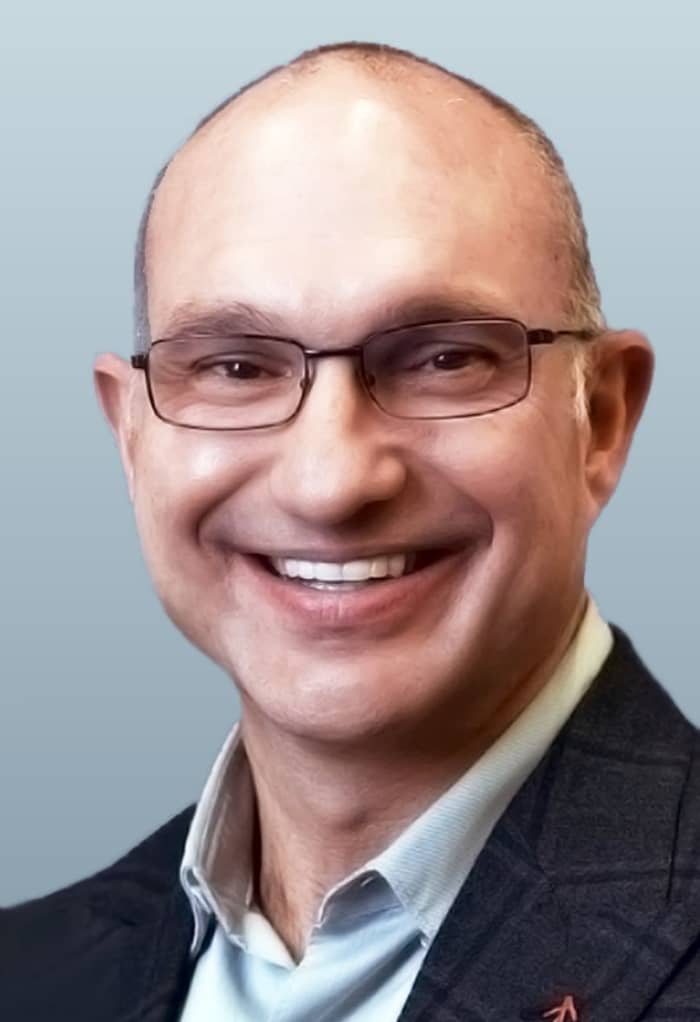This post was originally published on this site
Compass Diversified Holdings is betting on more brisk activity in healthcare services, in an exception to what’s shaping up to be a lackluster environment for deal making in 2023.
Compass
CODI,
owns a portfolio of 11 companies in the consumer and industrial sectors, and its CEO Elias Sabo is always keeping an eye out for middle-market companies to buy.
Compass typically hunts for highly defensible companies with enterprise values of $300 million to $400 million. Last year, it announced its largest deal yet with the $530 million acquisition of its newest portfolio company, thermal-insulation maker PrimaLoft.
With lower valuations and a higher cost of borrowing in 2023 meaning fewer opportunities in the consumer and industrial sectors, Sabo sees more opportunities for deal making with Compass’s new healthcare vertical.

Compass Diversified Holdings CEO Elias Sabo.
Compass Diversified photo
“The M&A market is extremely weak,” Sabo told MarketWatch in an interview at the company’s annual shareholder day on Thursday. “Capital markets have been disrupted by Fed policy, and multiples in public markets have gone way down. Private sellers don’t want to sell.”
Along with PrimaLoft, which makes insulation for apparel from recycled plastic, Compass also owns Sterno, a maker of food-warming systems, as well as baby-carrier maker Ergobaby and industrial company Arnold Magnetic Technologies.
Compass also owns crossbow maker Velocity Outdoor; Boa, which makes a fitting system for sports footwear; Marucci Sports, a maker of baseball bats used by the pros; and Lugano, a luxury diamond and jewelry brand.
Former portfolio companies include Camelbak water holders, Manitoba Harvest hemp and Advanced Circuits Inc., which Compass sold earlier this month for $220 million, including a roughly $105 million pretax gain on the deal.
Compass now sees healthcare and healthcare services as more resistant to a potential recession because of demographic tailwinds from aging Baby Boomers, Sabo said. The sector also offers more deals than other businesses, with more families and entrepreneurs willing to put their companies up for sale.
“Healthcare still has robust deal activity,” Sabo said.
While Compass has yet to announce an acquisition in the healthcare space, in November the company hired former Sotera Health Co.
SHC,
executive Kurt Roth as its head of healthcare.
Roth previously worked as head of corporate development and strategy with Sotera and as managing director of the investment banking group at Robert W. Baird & Co.
Analysts who cover Compass also cover specialty finance companies such as Sixth Street Specialty Lending Inc.
TSLX,
Ellington Financial Inc.
EFC,
Ares Capital Corp.
ARCC,
and Blue Owl Capital Inc.
OWL,
but Compass Diversified Holdings argues that its business is unique among these players.
Unlike business-development companies, Compass Diversified Holdings typically acquires equity in its portfolio companies instead of providing debt. And unlike lenders, it seeks full control of its portfolio companies.
Compass also differs from larger publicly traded private-equity firms such as TPG Inc.
TPG,
or Apollo Global Management Inc.
APO,
in that it does not primarily invest from private-equity funds, which typically have a three- to six-year period of ownership of their portfolio companies.
Since Compass invests off its own balance sheet and not out of a fund, it’s able to hold onto its portfolio companies much longer and realize more gains, Sabo said. Its recent sale of Advanced Circuits came after 16 years of ownership, for example.
The balance-sheet approach comes from the origins of Compass’s founders, who managed Kattegat Trust, a charitable vehicle set up by Torben Karlshoej, the founder of Teekay Corp.
TK,
The objective of the fund was long-term capital appreciation, not quick flips of businesses after only a few years of ownership.
Compass was founded in 1998 and went public in 2006. Sabo, who is a co-founder of the company, became its CEO in 2018.
Looking ahead, Compass plans to continue its emphasis on patient ownership and growth over time, rather than on gains through financial engineering.
“We’re business builders first, not asset traders,” Sabo said.


